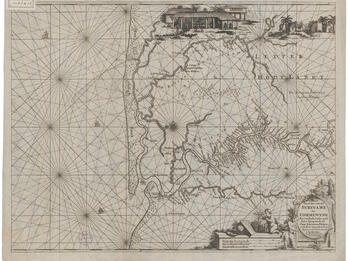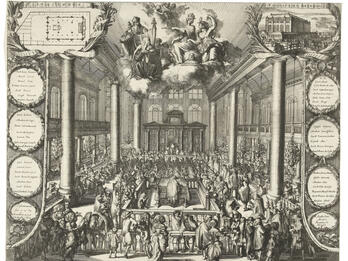The Jewish Tailors’ Guild of Prague
Jewish tailors in Central and Eastern Europe at first made clothes only for Jewish patrons. However, they later began to cater to non-Jews and sell ready-made clothing at fairs. The increasing success of the Prague Jewish tailors aroused hostility within the local Christian tailors’ guild, contributing to the general tension between Jews and non-Jews in the city. In the early seventeenth century, Jewish tailors asked to be admitted to the Christian guild, but the request was rejected; in the 1620s, the Jewish tailors formed their own guild. The guild was responsible for defending its members against unfair competition and negotiating with Christian guilds and local authorities. Its statutes clarify the status of journeymen and masters, outline the terms on which apprentices can be engaged, set standards, and describe the procedure for electing wardens. The guild also fulfilled social welfare functions: providing for tailors’ orphans, widows, and sick family members. As with other guilds, the Jewish tailors’ guild had its own standard, a patchwork of cloth with scissors embroidered in gold; many gravestones in the cemetery were engraved with a pair of scissors, indicating that the deceased was a guild member.
Entries in the Posen Library by This Creator
Primary Source
Statutes
- No one shall seek permission to become a master, unless he has it in writing from the Jewish Elders of Prague that he is native of the place, and he shall previously furnish the Jewish Elders with a…



